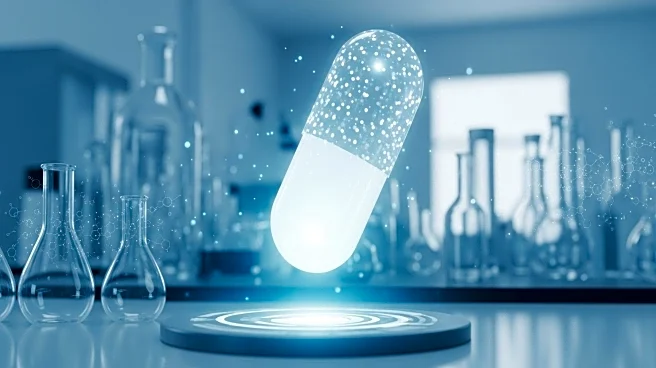What's Happening?
President Donald Trump has announced a 100% tariff on imported branded pharmaceutical products unless their manufacturers establish production facilities in the United States. This policy aims to enhance domestic production and secure supply chains for essential medicines. The tariffs are part of a broader strategy to pressure pharmaceutical companies to relocate production to the U.S., thereby increasing national autonomy in the sector. While some companies, like Eli Lilly, have announced significant investments in U.S. production, experts remain skeptical about the tariffs' ability to lower drug prices or significantly alter the market.
Why It's Important?
The introduction of these tariffs could have far-reaching implications for the pharmaceutical industry and consumers. While the policy is intended to boost domestic production and reduce reliance on foreign suppliers, it may lead to higher drug prices and affect the availability of certain medications in the short term. The move also highlights the U.S. government's focus on national security and self-sufficiency in critical sectors. However, the effectiveness of this approach in achieving its goals remains uncertain, as global supply chains are complex and deeply integrated.
What's Next?
The U.S. government plans to continue its investigation into drug imports, which could lead to further tariff measures. Companies that are in the process of building production facilities in the U.S. will be exempt from the tariffs on those products. The administration's trade policy, which includes tariffs on various sectors, underscores its intent to influence the economy. The impact of these tariffs on drug prices and availability will depend on the progress of domestic production projects and regulatory decisions.










